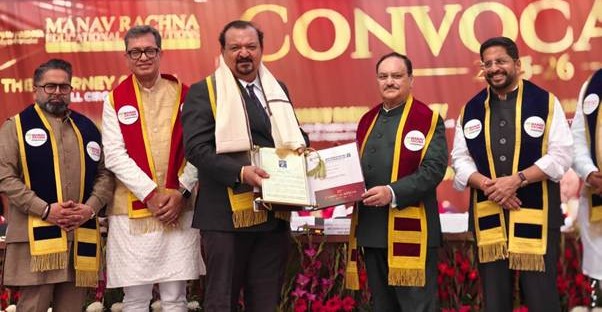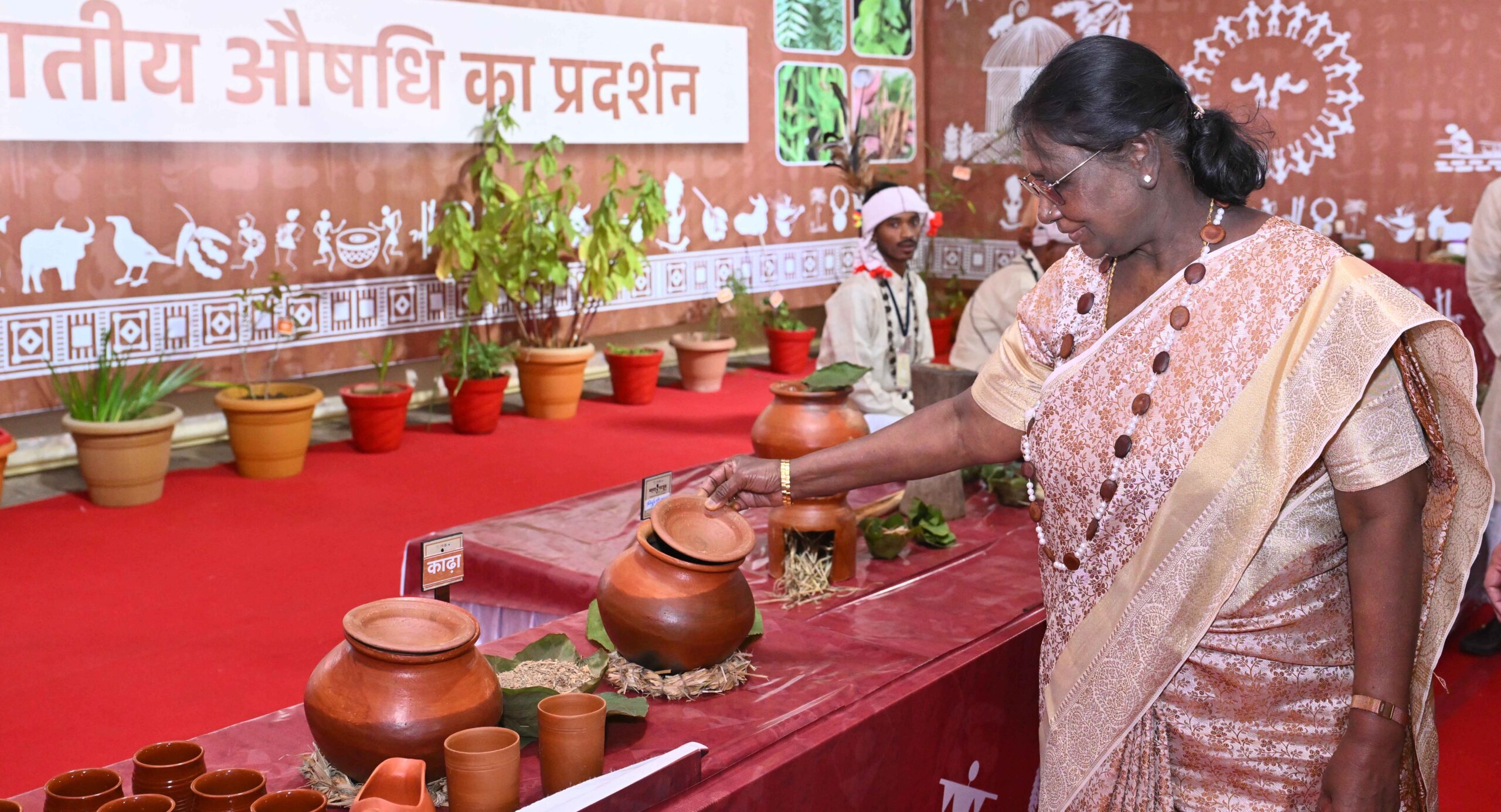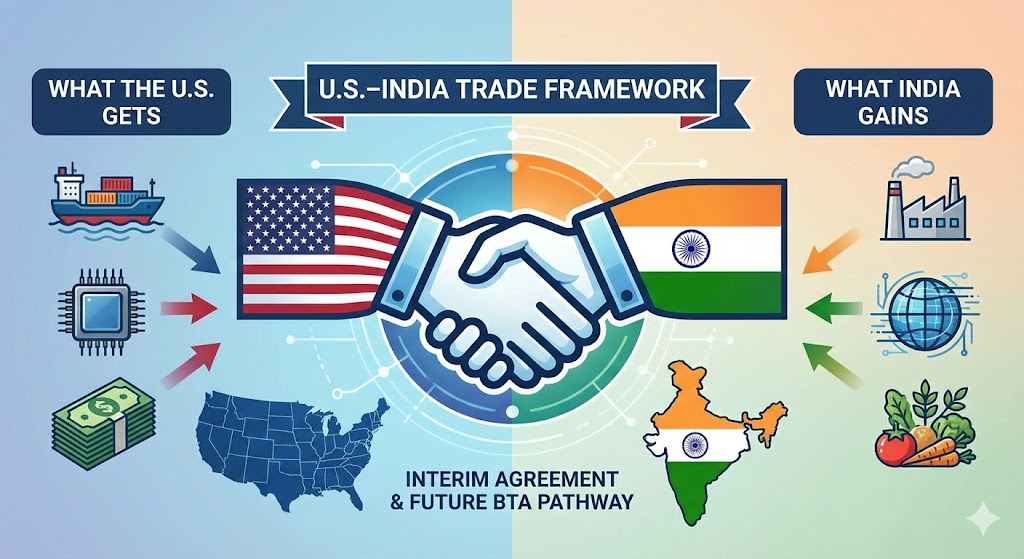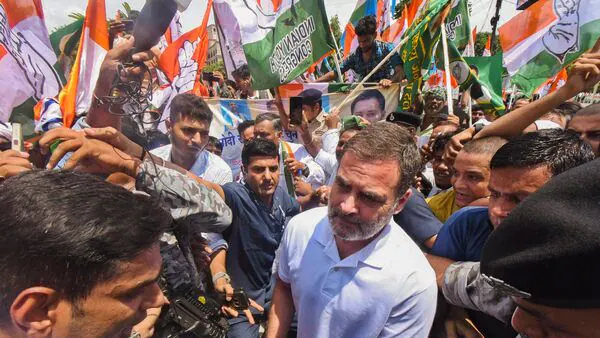Seamless Logistics Key to Operation Sindoor’s Success: Defence Minister Rajnath Singh
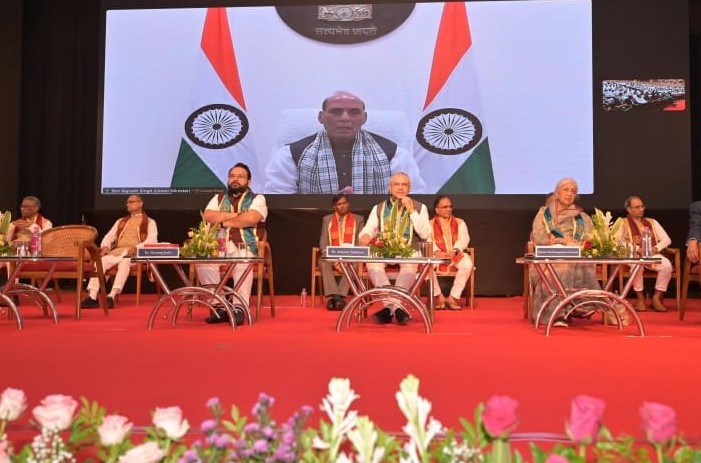
Union Defence Minister Rajnath Singh virtually addresses the third convocation ceremony of Gati Shakti Vishwavidyalaya in Vadodara; Railways and IT Minister Ashwini Vaishnaw, the university’s first Chancellor, along with Vadodara MP Dr Hemang Joshi and Vice-Chancellor Prof. (Dr) Manoj Choudhary are also seen.
Vadodara, July 27: “Seamless logistics management — from the mobilisation of Armed Forces to the timely delivery of equipment — was a deciding factor in the success of Operation Sindoor,” said Defence Minister Rajnath Singh, addressing the convocation ceremony of Gati Shakti Vishwavidyalaya (GSV) in Vadodara on Sunday. He underscored that in modern warfare, victory is determined not only by firepower but by the time-bound delivery of resources, citing Operation Sindoor as a prime example.
Logistics as Strategic Power
The Defence Minister stressed the strategic importance of logistics, calling it a critical force multiplier during wars, disasters, and even global pandemics.
“Logistics is the power that transforms chaos into control. A nation with a strong logistics chain is the most stable, secure, and capable,” he said, highlighting the indispensable role of institutions like GSV in strengthening India’s 21st-century aspirations.
Economic Growth Through Logistics
Rajnath Singh called logistics one of the main pillars of economic growth, connecting the entire value chain from pre-production to consumption. He credited efficient logistics for India’s resilience during the COVID-19 pandemic, enabling the rapid distribution of vaccines, oxygen cylinders, and medical teams nationwide.
Infrastructure Transformation
Singh noted that the past 11 years have witnessed unprecedented infrastructure development in India. This transformation, powered by policy reforms and mission-mode projects, has enhanced physical connectivity, reduced logistics costs, and improved service delivery.
He highlighted the PM GatiShakti National Master Plan, which integrates seven pillars of development—railways, roads, ports, waterways, airports, mass transport, and logistics infrastructure—to give India’s economy a robust foundation.
“PM GatiShakti is not just a scheme but a vision, using cutting-edge technology and data-driven planning to build futuristic infrastructure,” he added.
National Logistics Policy
Rajnath Singh pointed to the National Logistics Policy, which aims to create an integrated, efficient, and cost-effective logistics network. The policy targets a reduction in logistics costs from the current 13–14% of GDP to levels seen in developed economies, improving the competitiveness of Indian products in domestic and global markets.
Gati Shakti Vishwavidyalaya’s Role
Calling GSV a prestigious hub of logistics education, Singh praised the university for equipping students with expertise in digitisation, automation, AI-enabled logistics forecasting, and sustainable freight systems.
“GSV is not just an institution; it is a mission that embodies India’s aspiration for fast, organised, and coordinated progress,” he said.
Call to Youth
Urging students to become problem-solvers rather than job seekers, Rajnath Singh remarked:
“For India to achieve Viksit Bharat by 2047, we need smart logistics systems. A nation cannot progress until its goods, services, and people move swiftly and seamlessly.”
About GSV
Established in 2022 as a central university under the Ministry of Railways, Gati Shakti Vishwavidyalaya focuses on developing world-class talent in logistics and transportation. Railways and IT Minister Ashwini Vaishnaw, the university’s first Chancellor, attended the ceremony along with Vadodara MP Dr Hemang Joshi and Vice-Chancellor Prof. (Dr) Manoj Choudhary.


